Graham Reid | | 8 min read
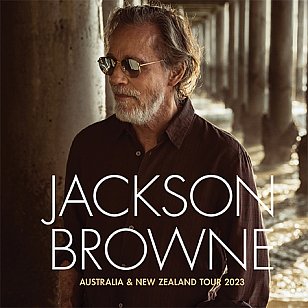
A year ago when American singer-songwriter Jackson Browne released his 15thstudio album Downhill from Everywhere, the British rock magazine Uncut proclaimed it “as insightful, melodic and artfully measured as anything Browne has done in the past 25 years”.
Despite that assessment – Mojo according it four stars – the album didn't sell anything like the quantities of Late for the Sky, The Pretender, Running on Empty and Hold Out in his 70s heyday.
But it did get him a Grammy nomination in the Americana category, 50 years after his eponymous debut album, which must have meant high-fives and “Yeah, the kid's still got it” celebrations?
“Yes, I was pretty happy about that,” he chuckles briefly before again turning to a more measured tone, the hallmark of a wide-ranging conversation.
“You know, the Grammys never used to matter to any of us . . . but then they became one of the big arenas for performance.”
He weighs carefully when I mention John Lennon saying he was pleased when a Beatles' single didn't make number one because it took some pressure and expectation off. Did he feel like that when he wasn't selling as well in the 80s?
“Hmmm. No. The pressure's always there, but I put it there myself because of ambition, really. Especially if you've done something good before, you want to do something good again.”
But you are still doing something good it's just fewer people are buying it?
“Hmm, you can't do the same thing over and over though, you have to do something new. Of course you do repeat yourself at times.
“I remember one of my friends, my lawyer, said, 'That sounds like the same as that other song'. Now I could see why he thought so because it had some of the similar characteristics, but to him they sounded the same, and I didn't know whether he just listen somewhat on the surface or . . .
“A young music writer in Chile asked me when we were there for the Amnesty show and she said sweetly 'What do you think of the fact that all your songs sound alike?'
“I'm not going to take that as an insult because she maybe didn't know English but I thought maybe that's true of all the greatest artists: if you hear just a few seconds of Bob Dylan you know it's him, as soon as Aretha opens her mouth you know it's Aretha, you know these artists' styles
“So in a sense it could be said they all sound the same.
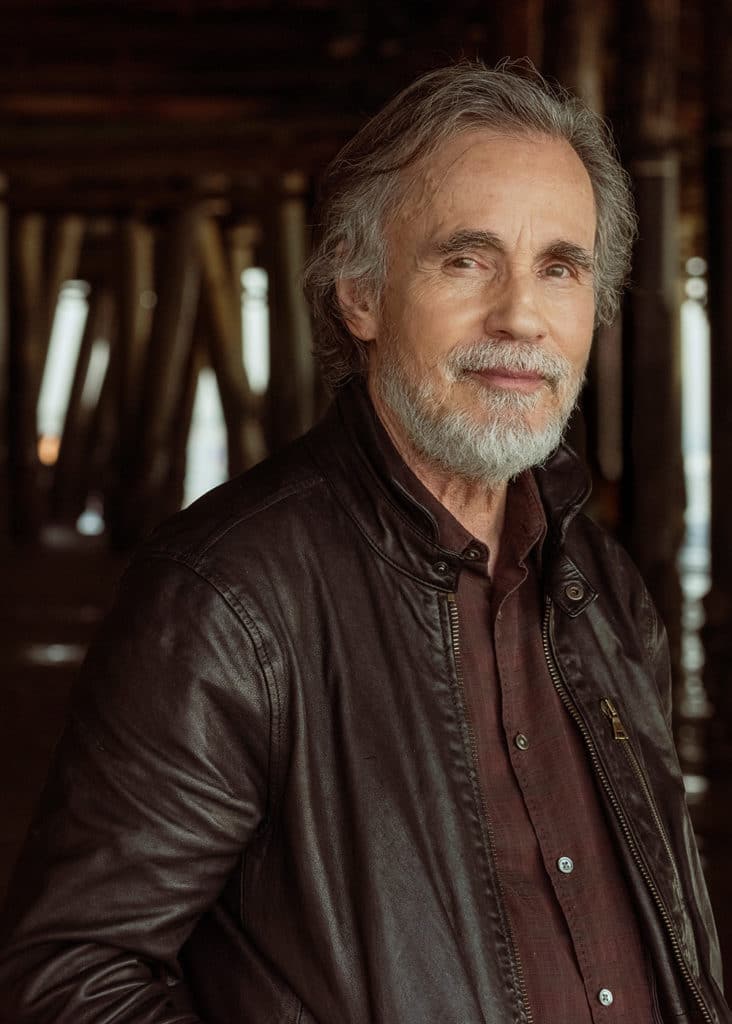 “So I turned it around a bit and took it as a compliment, for her she was unfamiliar with me and she only spoke a little English”.
“So I turned it around a bit and took it as a compliment, for her she was unfamiliar with me and she only spoke a little English”.
At 73, Jackson Browne – touring with his full band in April after 2018 appearances here – has had a career considerably better than good, right from when he first emerged as a precocious teenage songwriter with three songs on the 1967 Chelsea Girls album by Andy Warhol/Velvet Underground mood'n'gloom chanteuse Nico (Browne's lover at the time) and co-writing Take It Easy with his friend Glenn Frey who would transport it to his new band, The Eagles.
Browne became a seminal figure in the singer-songwriter cabal around Laurel Canyon in Los Angeles in the late 60s, counting among his running mates Warren Zevon, Lowell George of Little Feat, David Crosby, Graham Nash, James Taylor and many others.
Browne's songs could be obliquely personal – his voice more world weary than his years suggested – and often spoke to, and for, his generation.
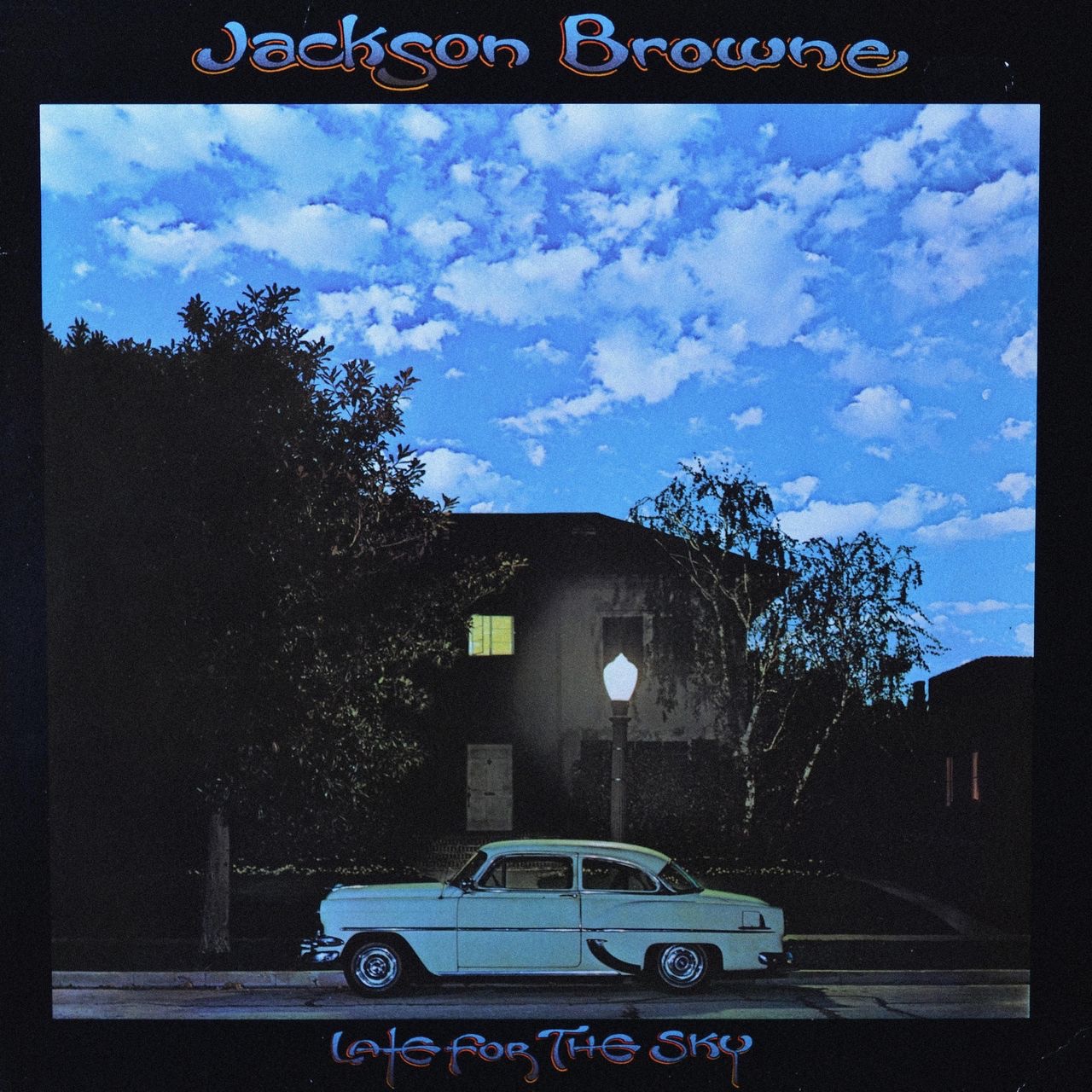 Alert to the cultural changes around him in the 1960s, Browne was self-aware and considered.
Alert to the cultural changes around him in the 1960s, Browne was self-aware and considered.
His album cover for Late for the Sky (74) was inspired by the paintings of Belgian surrealist René Magritte. On The Pretender (76) Browne is depicted as an everyman on a busy street although the back cover had a translation by Kenneth Rexroth of a poem by the Nobel Prize-winning Chilean writer Pablo Neruda.
That cover affirmed both aspects of Browne's emotional and intellectual appeal, the title track about a character “caught between the longing for love and the struggle for the legal tender” who “started out so young and strong, only to surrender”.
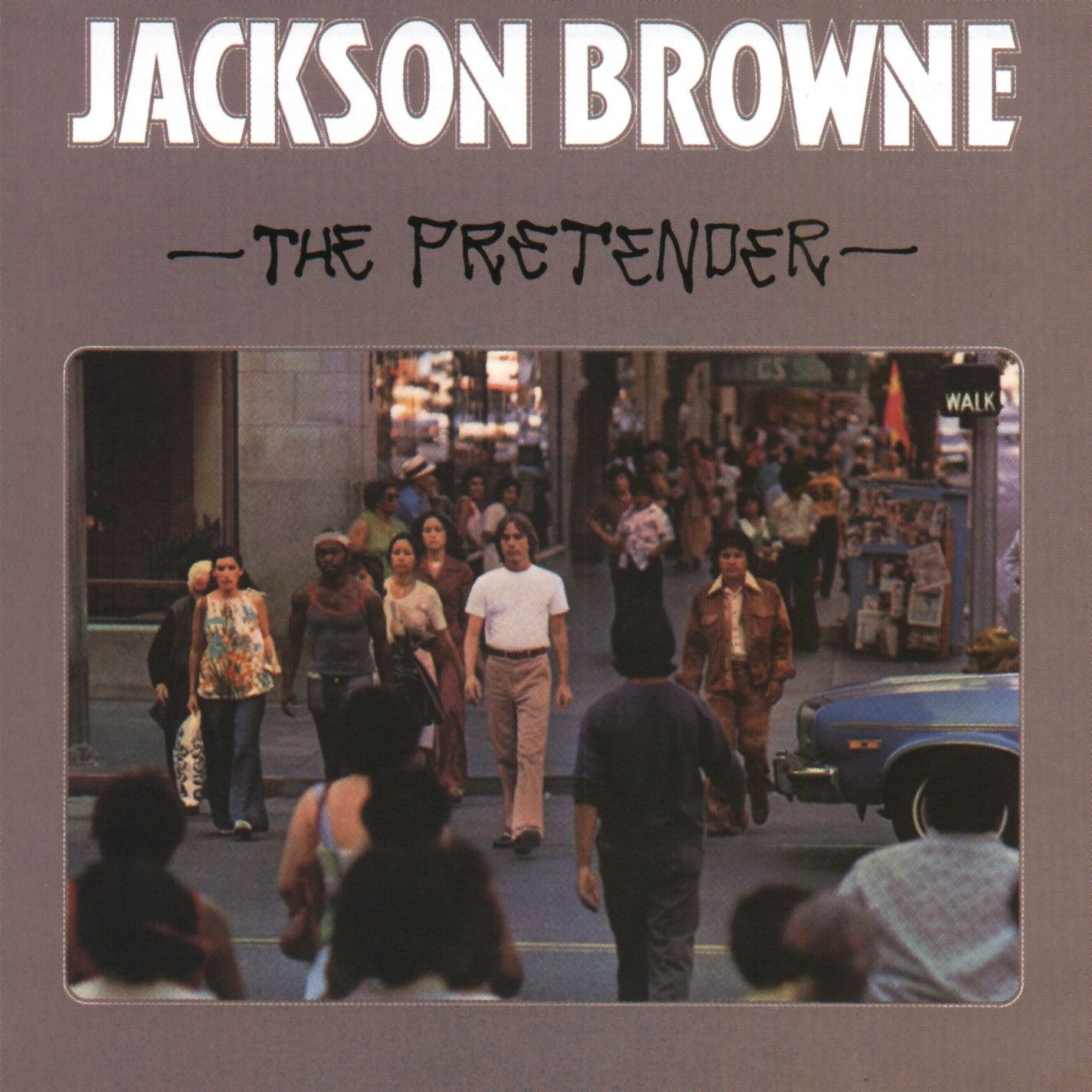 It was the uncomfortable aural epitaph for a jaded generation enduring the last flicker of 60s optimism, but dying in the middle-class suburbs it had once fled.
It was the uncomfortable aural epitaph for a jaded generation enduring the last flicker of 60s optimism, but dying in the middle-class suburbs it had once fled.
As much as such insight has been Browne's forte for half a century, so has political activism. He laughs when I identify myself as from “cold but nuclear-free New Zealand” and traces his political activism – Greenpeace, anti-nuke, environmental issues, human rights – to the cultural milieu of the 60s and the platform popular music gave him.
“I come from the 60s when there was opposition to the war in Vietnam, an effort to integrate our country and to bring about social justice. We're still working in the same arena for social justice, it's more vital than ever.
“Before I'd made any records I attended rallies, heard people speak and joined things for social change because of the beliefs I was brought up with. My belief was that it was the responsibility of a citizen to take part in that process.
“I saw I had an opportunity [in music] but it took a while for me to do something musically with my desire to help bring about social change.”
He says there was a period of being invited to appear at rallies and, as the protest movements became more organised, benefit concerts emerged so “it became possible for someone to pivot from just making music to making music for a purpose.”
Browne was highly visible at anti-nuclear MUSE concerts (Musicians United for Safe Energy) in 1979 at Madison Square Garden alongside Bonnie Raitt, Bruce Springsteen, John Hall of Hall and Oates), Carly Simon, James Taylor, Gil Scott-Heron, Tom Petty and others.
Wherever there was a need – be it supporting arts in schools, Amnesty International, the Tibetan diaspora, hurricane relief, Native American land rights among them – Browne seemed to always be available.
As a product of his generation and a longtime Democrat, he must despair at the long tail of Trumpism?
“I think what's happening is what's always been happening; greed and avarice are human conditions. Tyranny is a human condition. Every generation has its tyrants [but also] patriots and people awake to the fact some are despoiling national resources or murdering the innocent.
“It's always been happening, so the idea that [the 60s generation] was going to put an end to it all at once [was implausible]. The feeling you have when confronted by anything is you want to be part of the solution, and a great many solutions have been arrived at.”
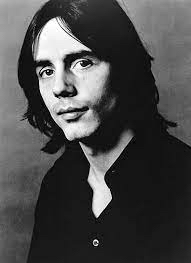 He notes the development of electric cars, portable telephones and climate change measures as harbingers of change.
He notes the development of electric cars, portable telephones and climate change measures as harbingers of change.
“But change is always happening. The question is whether that change will serve the common good or just a small elite who'll manipulate it for their ends.
“There's a great book called Tyrant by Stephen Greenblatt, it's a study of Shakespeare's tyrants and is so contemporary. He never mentions Trump but it's really about what's been going on with Trump and the people who support him even though they know he's lying. This is a characteristic of Richard III and of Lear.”
As a songwriter, Browne has the opportunity to reflect on the human condition as much as his own internal world, but it can be a solitary preoccupation. Could he have been happy as a songwriter or did he want to be on the stage?
“In the beginning I just wanted to be a songwriter because I could be anywhere and do that, from remote in the country or on island or in a city.
“I only wanted to sing [my songs] myself when I heard other people doing them because I thought, 'I could do this the way I want to hear the songs'. I heard someone record a song of mine and thought, 'No, it doesn't really go that way'.
“Back then I didn't sing very well by conventional standards, it took a while to get that going. By the time I'd made my first couple of albums I'd solved some of my problems. But I've got the demos to prove I didn't sing well before that. I'm still working on it.”
The evidence on Downhill from Everywhere – which shifts from archetypal Browne ballads to Stones-lite rockers and Spanish influences – suggests not much work need be done, even accepting the vocal attritions of age.
“You can't be too critical of your own voice, you just imagine somebody else can sing it really great. There are songs I used to sing I now give to other people and say, 'you sing the high part, let's make our sound together'. You just have to learn what your voice will or won't do.”
There must be many songs your audience would expect but are there some you just can't sing anymore because they are too personal or they don't mean much to you anymore?
“Yeah. Sure there are. There are some I'll perform and I think that they didn't get me much altitude and I didn't really like. I've always sung songs from all of my albums but there are ones that under certain circumstance and if they are requested I will sing but that's very different from me deciding to do it.
“Like someone calls out for Song for Adam [from his debut album] and I'll sing it because I'm answering their desire to hear it and it may be satisfying for me to do.
“I pulled that out on the last tour because we have a violinist in the band, but I didn't really enjoy it as much as I thought I would, it's a young song and I think I've grown past it.
“Yeah there are some that don't work anymore, you grow beyond them”.
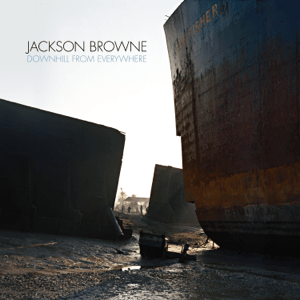 The current album opens with Still Looking for Something which might be The Pretender character assessing life again?
The current album opens with Still Looking for Something which might be The Pretender character assessing life again?
“I think to a large degree it's about having grown up or cast off some vestiges of an established life you earned and wanted to grow beyond. It's about trying to be young. And a young person could sing that song. It's about trying to find something that matters, or the way something used to matter.
“The process of writing a song is self-examination and enquiry into what you really want, or really hope you'll find.
“Like Minutes to Downtown [on the album] is about someone realising they're not going to have this thing with this person, but it's still very beautiful even though it's not going to where you want it to go. That's the short story aspect to that song.
“So some songs have an underlying story. But of course, not everybody listens that way.”
You put it out in the world and it no longer belongs to you, others will make what they will of it?
“Exactly right.”
.
Jackson Browne and his band play Kiri Te Kanawa Theatre, Aotea Centre, Auckland. April 18, 2023; Michael Fowler Centre, Wellington. April 19; Town Hall, Christchurch. April 21

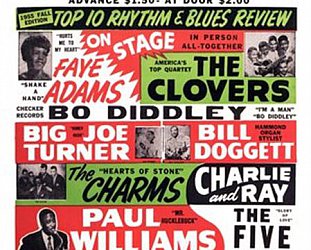

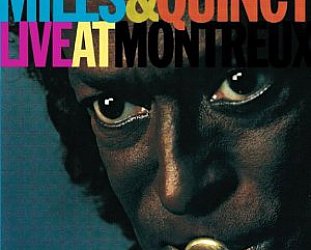

post a comment